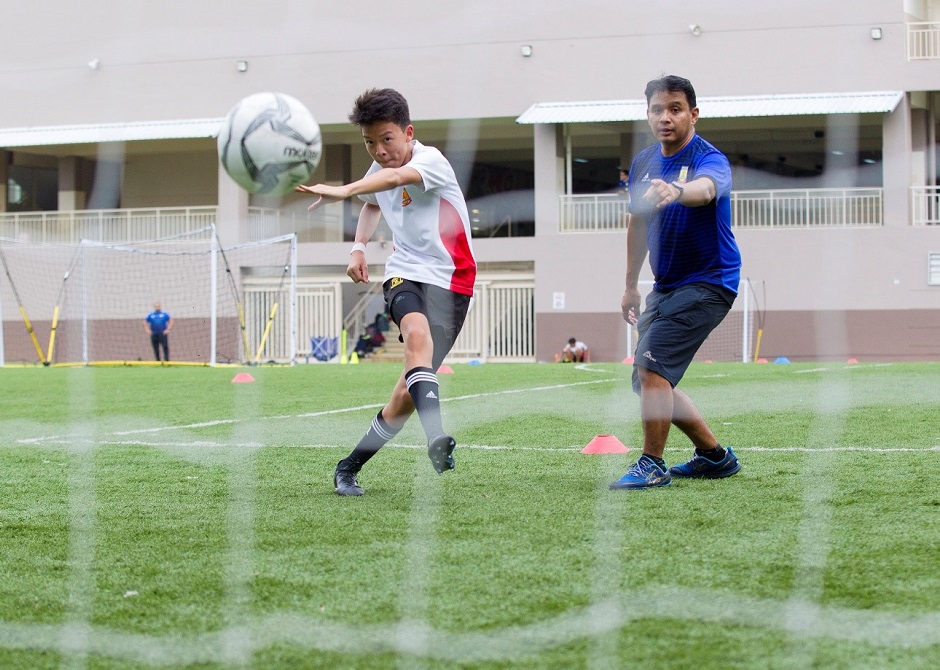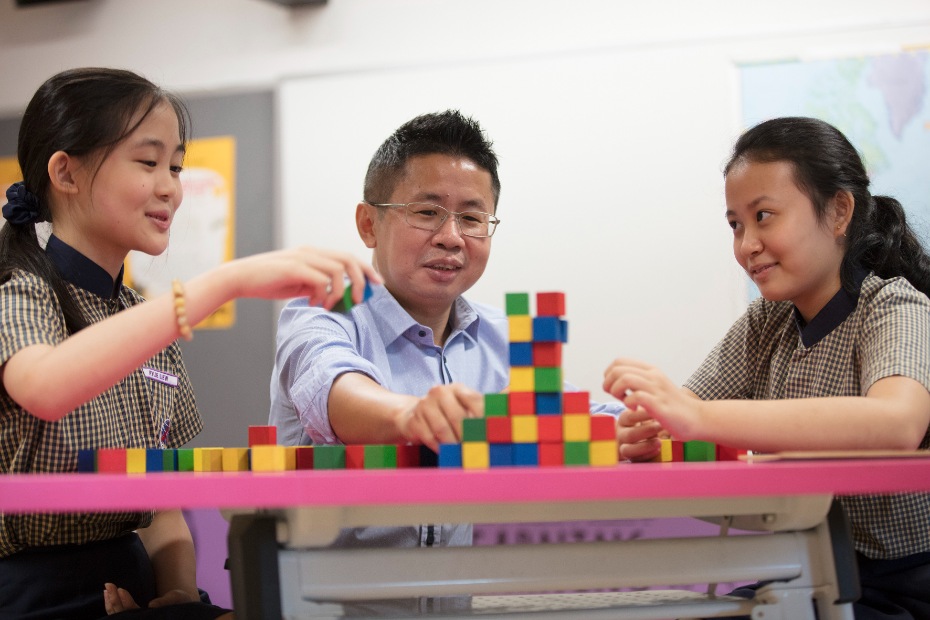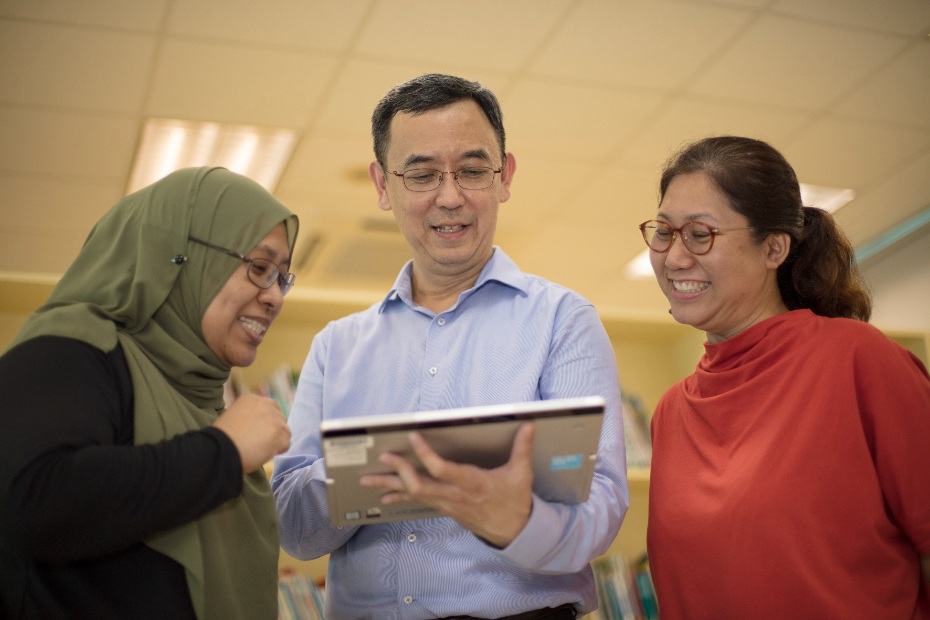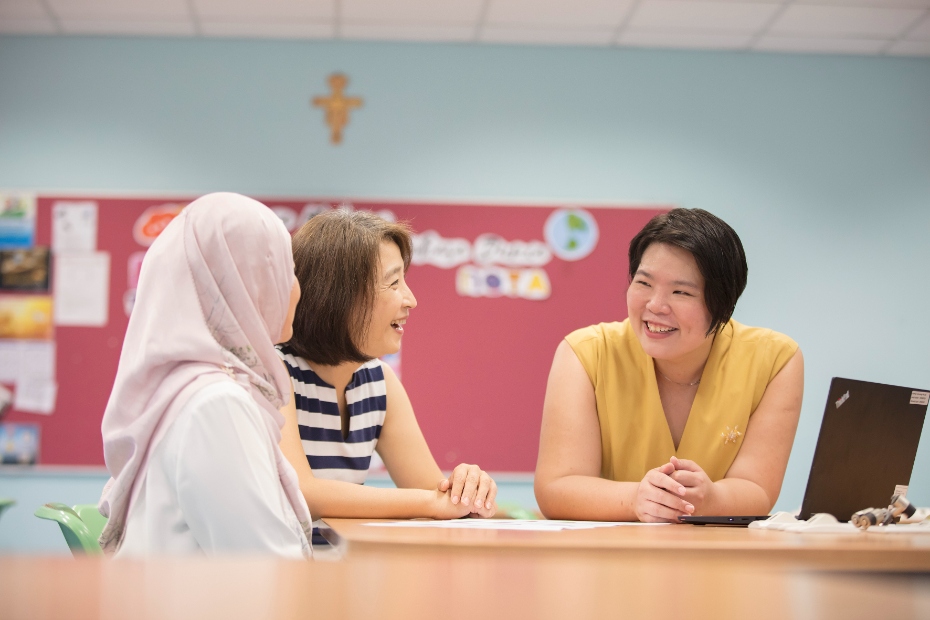Advocate for Adventure
29 Aug 2018

Outdoor education brings a wealth of benefits for students – take it from the teacher who once worked as a mountain guide in Nepal.
Edzra Bin Iskandar, Bedok South Secondary School, President’s Award for Teachers 2018 Recipient
Facing wind and waves, small groups of Secondary 2 and 3 students sail the high seas between Singapore and Pulau Ubin. Over two days and one night, they can only rely on each other, the boats they are in, and the survival skills they have honed in the preceding five months.
Looking on with pride from an accompanying boat is Edzra Bin Iskandar, Bedok South Secondary School’s Head of Department for PE and Co-Curricular Activity (CCA).
The lifelong outdoors enthusiast believes in giving his students challenging activities as a way to forge character and pick up skills like teamwork. “There’s nothing like being in a difficult situation for people to learn to work together,” he says. In doing so and overcoming obstacles, they gain confidence and self-esteem.
He is convinced this is the way to give Normal stream students a leg up in life, which is why he selects them for the coveted programme run by the Singapore Sailing Federation, which can only take 20 students from his school.
“Hopefully, they are able to transfer this learning experience back into the classroom. If they have overcome difficulties at sea through teamwork and resilience, when they face difficulties in their studies, they can find it within themselves to bounce back,” Edzra says.
He also recommends such activities as a way to direct students’ energies in a positive direction. “Kids crave adventure, risk. If you don’t provide adventure, they create their own and that is where trouble begins.”
Indeed, the teacher of 20 years has observed drops in absenteeism, late-coming and disciplinary cases after every outdoor programme he organises.
Spreading the word
Edzra’s love for the outdoors is so strong that after graduating with a degree in Biology from the National University of Singapore, he packed his bags and went to work in Nepal as a mountain guide for a year. He got the offer through Nepalese friends he made while trekking there as an undergraduate.
He then returned to Singapore and became a PE teacher, leading several cohorts of students in playing all kinds of sports. But his heart was still with outdoor adventures. So he was thrilled when, 10 years into the job, he was invited to join MOE’s Co-Curricular Activities Branch to help craft an outdoor education curriculum for all schools.
Implementing it, on the other hand, proved challenging. Up to that point, PE and outdoor education were considered quite separate activities. The former was usually conducted within the school, and centred on exercise and physical games. The latter involved survival skills, activities like hiking and climbing, and was the preserve of outdoor adventure camps run by specialists. Now, the two were coming together.
“PE teachers are traditionally more sports-inclined. They may not have as much experience with outdoor education and adventure,” Edzra explains.
So he spends a lot of time training his colleagues. Besides those in his own school, he conducts seminars and programmes in the East.
“I had to help my colleagues see the outdoors as a meaningful way to educate students. Once this is done, half the battle is won.”
For Edzra, winning the battle has involved bringing two teachers from his school on a three-week hiking holiday in Tasmania with his family. He has also formed teams of teachers to participate with him in the Mount Fuji Trailwalker hikes. This is an annual 100 km walk over 48 hours to raise funds for charity. It involves walking within sight of each other through the night, taking breaks of only 15 minutes every 10 to 20 kilometres.
In addition, to help parents understand the importance of outdoor education, Edzra has been involved in organising Parent Child bonding activities such as Night Walk to Labrador Park, Dad and Child cycling trips and Parent Support Group Coastal Cleaning to Chek Jawa. During these trips, he would come up with simple guides to help parents hone their facilitation skills, so that parents can engage in meaningful conversations with their children. Through Edzra, the school was able to level up parents’ understanding towards outdoor education.
One of the things he hopes to impress on the PE fraternity is a lesson he picked up in Australia, when he was there for his Masters in Outdoor Education: “In Singapore, the attitude is that if there is a hazard, we remove it or go around it. In Australia, if there is a difficulty, the attitude is to develop the students’ ability to overcome the difficulty.”
“Nature is a very nasty teacher,” he says. “That’s why it is the best teacher.”
Appreciating nature
Beyond the adrenaline rush and a sense of achievement, Edzra also believes that a large part of outdoor education is nature appreciation.
This is why his hikes, camps and kayaking sessions also involve side activities like photography, bird watching and sketching. Or it could also be getting his students to observe the amount of floating litter as they paddle along Singapore’s coasts, and encouraging them to think about what they can do to protect the environment.
Edzra does the same with his own children, aged 11 and 9. He makes sure there are other children around when he takes them hiking. “They remember the hike because of the friendships they make. Hopefully, in the future they will relate the outdoors to fond memories and the outdoors will then be a positive experience. Reflection is important to nurture love for the outdoors,” he explains.
Edzra is lucky his passion is fused with his professional work. It has led him, together with others, to lay a strong foundation for outdoor education in Singapore.
He says with satisfaction, “Outdoor education has improved. All schools have camps now. Things are going in the right direction, not evenly, but going forward. It is better than before. Before, my task was to persuade schools to use outdoor education. Now, it is to help by building up the capacity of the teachers.”
“He is a caring teacher. When he sees that I am not feeling well or if he thinks I’m feeling down, he will approach me at recess or before CCA. He will ask me about school and talk to me about my problems. He does this for my friends too.’’ – Syed Nooh bin Syed Alwee Zaaheir, Secondary 3

.jpg)



